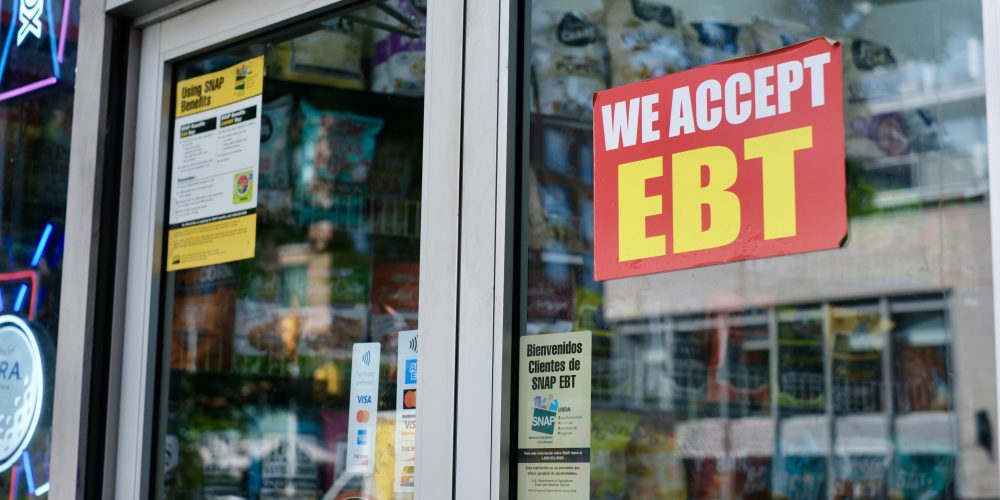A Letter from the Desk of Jilly Stephens in Response to the Senate Vote
Senate Has Made Devastating Cuts
July 2, 2025
At the end of May, I wrote to you about the House of Representatives’ proposed cuts to food assistance and Medicaid. After some debate, the Senate has voted in favor of its version of the bill, which also proposes approximately a trillion dollars in cuts from domestic programs, including nearly $200 billion in critical food assistance funding. This includes the elimination of SNAP-Ed, the primary source of funding for City Harvest’s Nutrition & Culinary Education programming, which gives people the skills and knowledge to prepare nutritious, budget-conscious meals with the free produce we provide. The bill will now go back to the House of Representatives for a vote as early as today, and these catastrophic cuts have the potential to be signed into law by the end of the week. If they are, this bill will take food off the table for millions of our neighbors.
The Supplemental Nutrition Assistance Program (SNAP) at the heart of the $200 billion cuts is the nation’s most effective anti-hunger program. If passed:
- 200,000 New York City residents would lose access to SNAP, particularly aging adults
- Nearly 1.8 million New Yorkers could see their benefits decrease
SNAP is also an economic driver of local business, with every $1 in SNAP benefits generating $1.50 in activity at neighborhood supermarkets and bodegas.
What We Are Seeing on the Ground
These cuts come at a time when visits to NYC soup kitchens and food pantries are at a record high. 50% of working-aged New Yorkers, many of whom work multiple jobs, are struggling to make ends meet amidst an affordability crisis in our city. We’re hearing from some of our partner soup kitchens and food pantries who have already lost funds and are being forced to turn people away because they do not have enough food for everyone who is depending on them. These partners are telling us that some food pantry employees are reaching into their own pockets to cover expenses to ensure they have enough food for the growing lines outside their doors.
Yet even New York City’s government is not meeting the moment. Just this week, the FY26 City Budget did not heed calls from City Harvest and other anti-hunger organizations for adequate funding for Community Food Connection, which provides nutritious food to more than 700 of the city’s soup kitchens and food pantries.
City Harvest was already mobilizing to do more in response to the extraordinary need we’re seeing, and these cuts could force even more of our neighbors to turn to pantries in order to access the food they need to thrive. City Harvest cannot make up for these proposed cuts, but we can and must do more.
At a time when New Yorkers need help the most, it is up to us, City Harvest’s community of supporters, to step up for each other. With your help, we will provide as much free food as possible to our fellow New Yorkers who depend on us now, and the many more who may turn to us once these cuts go into effect.
How City Harvest Is Responding
This week is the start of City Harvest’s new fiscal year, and we have ambitious goals: rescuing and delivering approximately 87 million pounds of nutritious food for free, bringing on new agency partners across the five boroughs, and investing in these partners so they can serve more New Yorkers more efficiently. We want to continue to bring free nutrition & culinary education to schools and senior centers, and to grow our advocacy to help ensure leaders at all levels of government prioritize the needs of our most vulnerable neighbors. And we plan to do this because it is what was needed to respond to the high need even before these devastating and unprecedented proposed cuts. We are only able to do this and be there for our neighbors because of the ongoing and generous support of friends like you.
- Donate. The most effective way to support our work is by donating. Just $1 helps feed 2 New Yorkers in need.
- Advocate. Sign our petition to tell Congress and the USDA that you oppose any cuts to SNAP.
- Volunteer. You can find opportunities to distribute free produce, repack produce into family-sized bags to deliver to food pantries, and much more.
And if you, like so many of our neighbors, are struggling amid the city’s affordability crisis and are in need of food assistance, visit our Find Food Map for locations offering free food throughout New York City.
Thank you for your commitment to our fellow New Yorkers. No matter what happens in Washington, D.C. or in City Hall, we will do everything we can to provide as much free, nutritious food as possible to our neighbors who need it most—together.
In partnership,
Jilly Stephens
CEO of City Harvest
